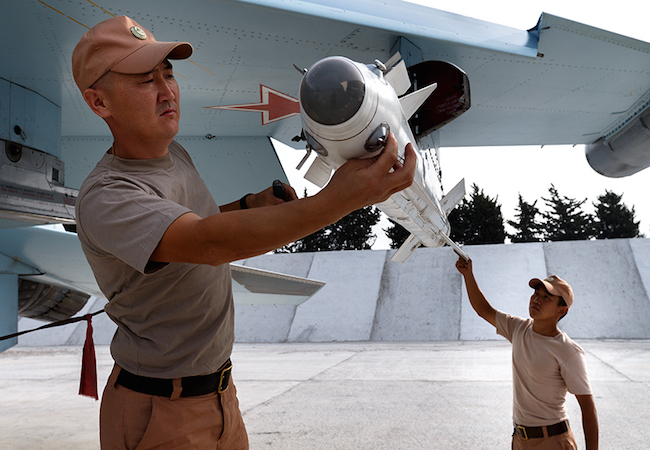The Russian intervention in Syria: The beginning of a New War

By Nasurullah Brohi
The protests and the unrest of local groups against President Assad’s regime since 2011 have created a frenzied situation and involved many militant groups to make their place in Syria. The unrest and then the consequent civil war in Syria encouraged many others to struggle for dominating the crisis ridden state. Ever since then, though massive crackdowns were carried out to curtail the rebels, but the situation has become even worse.
The Assad regime blames Western powers for their clandestine role in fuelling the chaotic situation of his country. Some analysts also strongly believe this is apparently a continuation of Western policy similar to the recent multi-regime revolutions in the Middle Eastern region. For instance a fleeting look over the fall of many recent regimes in Arab Spring like Libya, Egypt, Tunisia, Yemen and many others depicts a parallel result where the long-standing regimes could not survive even through strong resistance against the will of the great powers.
The Arab Spring was partially different move than the Autumn of Nations of 1989 that swept through the Eastern Europe and almost the whole of the Second World but the Arab Spring was triggered through modern technological communication means and has been termed as social media or Facebook Revolution where the revolutionists gathered through the social media on a common agenda of ousting the long-standing and so-called democratic-dictatorships.
The armed groups have got significant momentum and strongholds in various parts of the Syria, particularly; the Al-Nusra Front with the support of Al-Qaeda is believed to be very strong in the northwestern part of the country. This complexity of the Syrian war has attracted the concerns of many powers in the civil war, predominantly from last two years the ISIL with the support of Jaysh Al-Jihad, Yarmouk Martyrs Brigade and many other small militant groups has significantly dominated the momentum and has become the strongest challenge to President Assad’s regime.
Initially, President Assad relied upon partially unsuccessful tactics of using state military against these rebels, but a significant move was made through the composition of local volunteer groups in 2014 known as National Defence Force of Syria mainly supported by the Hezbollah, Iran and Russia.
The war noticeably became further intricate after Turkey and Russia’s direct engagements apparently pursuance of strategic goals for Syria. Similarly, through such moves there are likely chances of further involvements by many other Gulf countries that would of course fuel the conflict. It is also important to note here that since the fall of the Soviet Union, this is the first time when great powers have also come face to face to contain each other. The direct involvement of Russia in the conflict since 30 September 2015 has created a sagacity of proxy war between the U.S and the Russia and as a consequence, there are likely chances that this proxy war may shortly transform into a pro-world war involving many other countries in Syria. The crisis is slowly drawing the sketch of Cold War era like situation when the Great Powers often came across certain circumstances where they only supported the proxies against each other in achieving their vested interests and repeatedly this containment was only possible by lending a hand of their allies but when it was felt their interests do not fulfil the required level of goals they never even avoided the direct involvements.
Besides, Russia is a front line supporter of President Assad’s regime and has also blocked many serious Security Council resolutions against him, but apart from the political support, the direct involvement of Russia through military installations along Syria’s Mediterranean coast and fierce aerial attacks against ISIL is believed to be an escalation towards a greater involvement of many other countries in this war.
Notably, the use of Turkish bases by the US forces and the limited roles of Canada, Turkey, Australia and France in the war, though at the moment seems symbolic, but it definitely demonstrates that the US in not only involved in the operation, but there are many others waiting for the right time and the war in Syria has now become a playground of many competing players. After Georgia and Ukraine, the West tries hard to contain the Russia in Syria through a proxy war that gradually increasing towards a new Cold War with their allies in a global confrontation.




